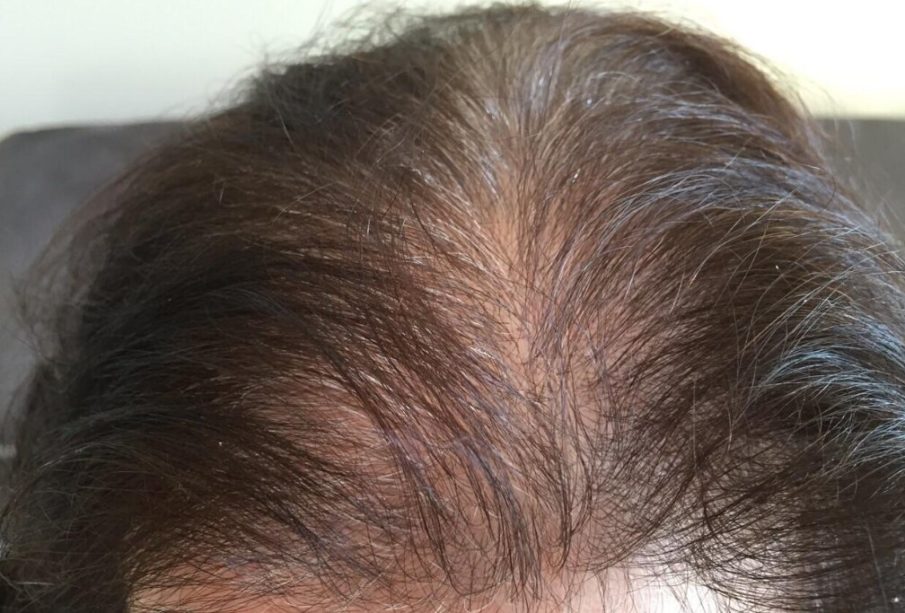Telogen Effluvium

Telogen Effluvium
Telogen effluvium is a form of hair loss that can result from multiple conditions including anemia (low blood count), low iron, and inadequate levels of protein in the diet, thyroid disease, childbirth, major surgery, severe illness, medications and birth control pills. Generally, once the body feels the insult, hair begins to shed over the entire scalp. This is because the insult causes the hairs to switch from the growth phase to the resting phase of the hair cycle. Some individuals will notice large amounts of hair coming out in their hairbrushes, in the shower or on their pillow. The normal shedding of hair generally increases from 100 to 150 hairs daily to almost 500 hairs. However, once the insult has been withdrawn from the body, the hair loss should resolve within 6 to 12 months.
Homeopathy and Herbal Medicines are very useful for Telogen Effluvium without any side effects for any age group. Homeopathy helps to treat each individual patient from its root cause.
Causes of Telogen effluvium
Common triggers of the condition may include pregnancy, surgery or illness and psychological trauma. In addition, many medical conditions (e.g., nutritional deficiency, syphilis) and medications (e.g., antidepressants) may cause hair loss. In women, this condition can be difficult to distinguish from androgenetic alopecia. Traumatic alopecia. Hair loss that is caused by chemicals (e.g., bleach, hot oils) or styling techniques that apply constant tension to the hair (e.g., hair straightening, tight braids). Habits of consistently altering hair (e.g., twisting, plucking) can cause hair to be distributed unevenly or broken. Traumatic alopecia is usually confined to the area being styled. It is often reversible but may become permanent if the area becomes scarred.
Traumatic alopecia. Hair loss that is caused by chemicals (e.g., bleach, hot oils) or styling techniques that apply constant tension to the hair (e.g., hair straightening, tight braids). Habits of consistently altering hair (e.g., twisting, plucking) can cause hair to be distributed unevenly or broken. Traumatic alopecia is usually confined to the area being styled. It is often reversible but may become permanent if the area becomes scarred. Physical or emotional stress or the discontinuation of birth control pills. Known as telogen effluvium, these forms of hair loss are characterized by an increased loss of hair over the entire scalp. Female pattern hair loss, on the other hand, is characterized by increased shedding of hair from only the top of the scalp. Telogen effluvium is usually a temporary condition, whereas female pattern hair loss is permanent.
- Low blood count (anemia)
Some people, especially those who go on crash diets that are low in protein, have severely abnormal eating habits, or protein malnutrition in the intestine can experience telogen effluvium. The body will attempt to conserve protein by shifting growing hairs into the resting phase. Massive hair shedding can occur two to three months later, when hair can be pulled out at the roots fairly easily. This condition can be reversed and prevented by eating the proper amount of protein.
- Childbirth
When a woman is pregnant, most of her hairs are in the growth phase. However, after delivery, many hairs enter the resting phase of the hair cycle. This will result in dramatic shedding that can cause thinning hair over the entire scalp. The hair loss can last three to six months, but usually resolves completely in most cases.
- Severe illness and Major Surgery
Illnesses or major surgery can cause hairs to enter the resting phase.. Three to four months after a high fever, severe illness, infection or major surgery, a massive shed of over 250 hairs will occur. This shedding usually corrects itself within six to 12 months.

